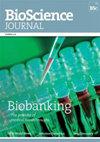A meta-analysis of biochar application to manage plant diseases caused by bacterial pathogens
IF 0.6
4区 农林科学
Q3 AGRICULTURE, MULTIDISCIPLINARY
引用次数: 0
Abstract
The current agricultural scenario faces diverse challenges, among which phytosanitary issues are crucial. Plant diseases are mostly treated with chemicals, which cause environmental pollution and pathogen resistance. In light of the UN Sustainable Development Goals (SDGs), the biochar alternative use to chemical inputs fits into at least six of the proposed goals (2, 3, 7, 13, 15, and 17), highlighting the 12th, which explains responsible consumption and production. Biochar is valuable for inducing systemic resistance in plants because it is a practical and frequently used resource for improving physical, chemical, and biological soil attributes. This review assessed the beneficial and potential effects of applying biochar to agricultural soils on bacterial pathogen management. Such application is a recent strategy; therefore, this research evaluated 20 studies that used biochar to manage plant diseases caused by pathogens inhabiting the soil in different systems. The effectiveness of biochar application in controlling plant diseases has been attributed to its alkaline pH, which contributes to the growth of beneficial microorganisms and increases nutrient availability, and its porous structure, which provides habitat and protection for soil microbiome development. Therefore, the combined effect of improvements on soil attributes through biochar application aids pathogen control. Biochar application helps manage plant diseases through different mechanisms, inducing plant resistance, increasing activities and abundance of beneficial microorganisms, and changing soil quality for nutrient availability and abiotic conditions.生物炭应用于细菌病原体引起的植物病害管理的荟萃分析
当前的农业形势面临着多种挑战,其中植物检疫问题至关重要。植物病害大多用化学物质治疗,化学物质会造成环境污染和病原体耐药性。根据联合国可持续发展目标(SDGs),生物炭替代化学品投入的用途至少符合拟议目标中的六个目标(2、3、7、13、15和17),强调了第12个目标,该目标解释了负责任的消费和生产。生物炭在诱导植物系统抗性方面很有价值,因为它是一种实用且经常使用的资源,可以改善土壤的物理、化学和生物特性。这篇综述评估了在农业土壤中施用生物炭对细菌病原体管理的有益和潜在影响。这种应用是最近的一项战略;因此,本研究评估了20项使用生物炭来管理由不同系统中土壤中的病原体引起的植物疾病的研究。生物炭在控制植物病害方面的有效性归因于其碱性pH值,它有助于有益微生物的生长并增加养分的可利用性,以及其多孔结构,它为土壤微生物组的发展提供了栖息地和保护。因此,通过施用生物炭改善土壤属性的综合效应有助于控制病原体。生物炭的应用有助于通过不同的机制管理植物疾病,诱导植物抗性,增加有益微生物的活性和丰度,并改变土壤质量以获得营养和非生物条件。
本文章由计算机程序翻译,如有差异,请以英文原文为准。
求助全文
约1分钟内获得全文
求助全文
来源期刊

Bioscience Journal
Agricultural and Biological Sciences-General Agricultural and Biological Sciences
CiteScore
1.00
自引率
0.00%
发文量
90
审稿时长
48 weeks
期刊介绍:
The Bioscience Journal is an interdisciplinary electronic journal that publishes scientific articles in the areas of Agricultural Sciences, Biological Sciences and Health Sciences. Its mission is to disseminate new knowledge while contributing to the development of science in the country and in the world. The journal is published in a continuous flow, in English. The opinions and concepts expressed in the published articles are the sole responsibility of their authors.
 求助内容:
求助内容: 应助结果提醒方式:
应助结果提醒方式:


